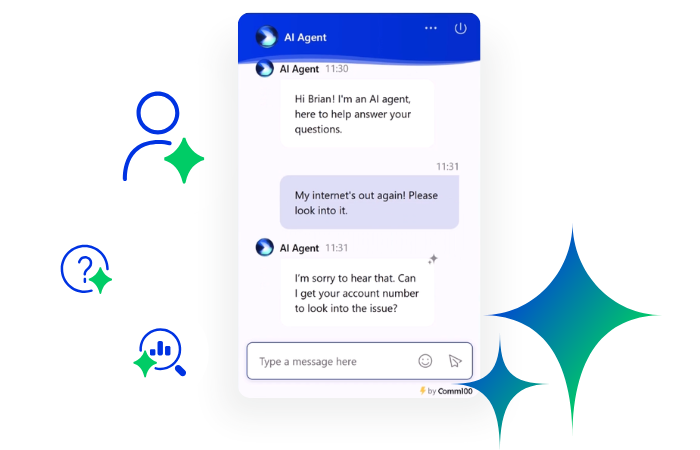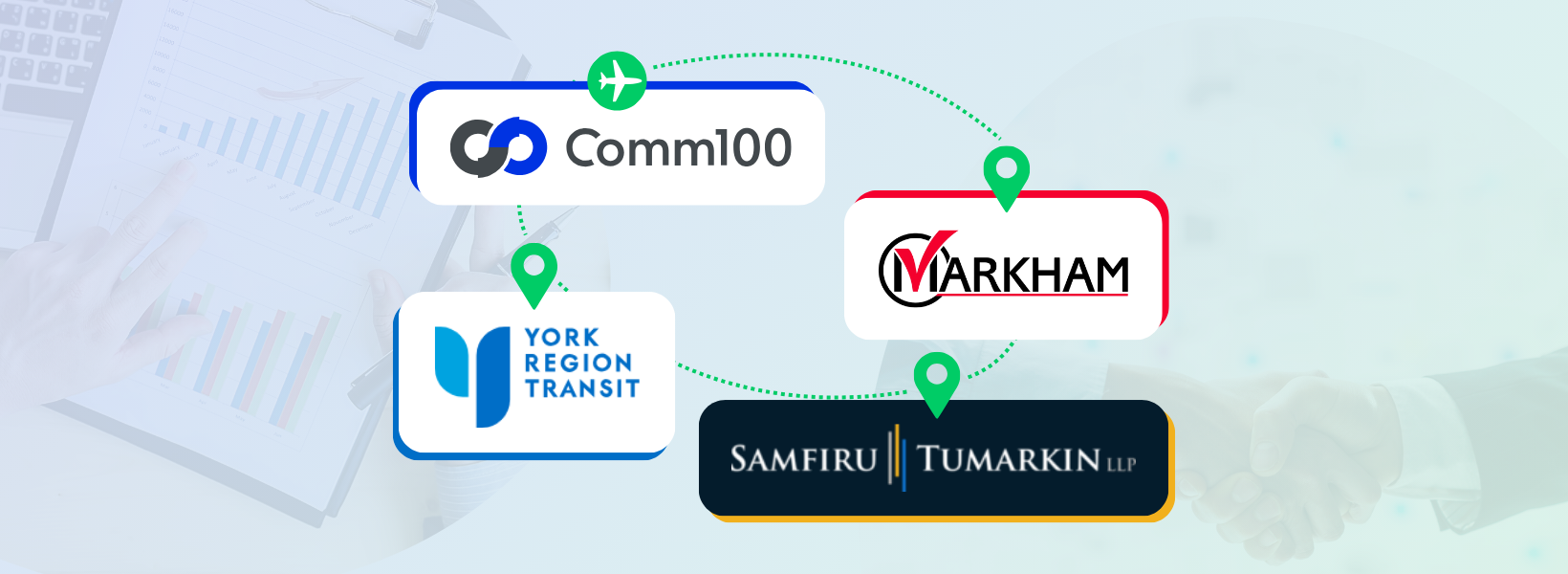What are you doing at this very moment to keep buyers coming back for more?
Compare what you’re doing for customers to experiences that make you feel good. For example:
- Does the guy at your favorite suit store call you by your name and totally get your personal style?
- What about the bookings site that remembered what destination you were checking out last week?
Nice, right? The same principle applies to the world of e-commerce.
That’s why I’ve compiled 7 tips, focused on customer habits and lifestyle, that you can use to increase customer loyalty in your webshop.
Treat Customers Like a Friend
A friend is always there for you. Try to be there for your customers by finding ways to help. That’s the reason online customer support is so important.
Try using a live chat tool like Comm100, which shows you what customers are doing on your site, and make sure your team is using that insight to step in and help at a moment’s notice. So when you see that a shopper has arrived at an expired link or entered a coupon code incorrectly, you can reach out to him or her immediately and put that problem to rest!
Shoppers like knowing brands are looking out for them, they’ll be more likely to remember the experience and keep coming back.
Encourage Them to Bring Their Friends
While we’re on the topic of friends, you should know that, 87% of customers share good experiences with others.
Why not sweeten the deal by offering customers rewards for their actions? Give shoppers a coupon when they invite a friend or, even better, when that friend makes their first purchase!
One nice example of gifts-for-shares is Spark Notebook, a project that sprung up from Kickstarter. Kate Matsudaira generously offered free PDFs of her product to those who shared, spreading the word about her notebooks and journals. That’s great incentive and built excitement on social media surrounding the brand!
Try a tool like Referral Candy to help you track invites and give rewards automatically via your e-commerce store.
Your customers already know about you and like what you’re doing, so they’re really the best people to invite other potential customers right to your store.
Build Trust and Prove You’re Worth Doing Business With
Customers stick with the brands they trust. Recognize them, make sure they feel like active participants and build trust by offering rewards that they respond to and enjoy.
After a while, repeat customers expect some sort of compensation for their loyalty.
You don’t have to offer coupons and perks alone! Make the shopping experience better by gamifying it. Gamified rewards programs—go to Antavo for more ideas—let customers collect points as they interact with your brand, whether it be purchasing, reading a featured blog post or sharing a new product.
Whereas monetary rewards are associated with an open wallet, points are associated with games, especially when they’re focused on not only checkouts, but other fun brand interactions.
Focus on Smooth Sailing, Especially at Checkout
User experience expectations are at an all time high! In fact, Sean Work at Kissmetrics published some incredibly useful stats on loading time and the user experience: 47% of consumers expect a web page to load in 2 seconds or less. So a slow experience, bugs or any other unexpected roadblocks will send shoppers running into the arms of your competitors.
Make it your first priority to deliver a perfect checkout experience. Why checkout? Because there’s nothing worse than, after filling your cart, registering and getting your credit card out, finding out that the checkout form doesn’t work. Bye-bye, another cart abandoned.
Analyze your checkout with a tool, like ClickTale, that shows your stats on user experience and try A/B testing to discover the improvements that will lead to better conversion.
Be Relevant, Always
55%-77% of content produced is not successfully used or consumed, according to TheoryGlobal Survey. That’s a lot of unused content floating around in cyberspace.
Don’t be a statistic! Make sure you’re really focusing on your customers’ wants and needs.
Share extra-relevant content about your brand and make sure your ads are properly targeted. Try basing your ads on your customers’ search or purchase history. Knowing what items are on your customers’ minds makes it easier to show them offers they simply can’t refuse! Try using a tool like Searchspring to automatically show customers perfectly relevant offers.
Show Them What It’s All About
62% of millennials want content from brands that show how their products can be used, according to a NewsCred guide.
I’m a part of that crowd. I really enjoy knitting, and most yarn stores I know have knitted and crocheted items hanging or sitting around, which shows how the yarn looks when it’s actually made into something. That’s a really helpful example which helps me decide which ball of yarn to purchase.
Create a similar effect for your webstore by letting customers post how they use your product in their daily lives. Just like many car dealerships encourage happy, new car owners to post photos with their new ride!
You should also consider creating videos that show products in use, tutorials, infographics, as well as sharing news and blog posts with inspirational, beautiful or practical examples, and show how influencers use them, too!
Be a Part of Your Customers’ Daily Routine
61% of global Internet users research products online, according to HubSpot’s marketing statistics. That means that, in order to build trust surrounding your brand, you need to be there, too.
Earlier this year I was browsing the website of my favorite health food brand, ThinkThin, who targets females who are interested in a healthy lifestyle. I was thrilled to see an Instagram icon on their page and I immediately went to see what they were posting. Now, as a follower, I no longer have to go to their site to find out about new products, flavors and special promotions-they come to me. They knew Instagram would be a great place to reach me and thousands of other followers with similar interests.
Think about where your customers and their friends are and be a convenient part of their lives there, too.
The Takeaway: Make every interaction a positive experience.
If I had to sum it up in one phrase, “it’s all about the customer experience.” Consider every single way customers interact with your brand and make sure a positive experience is happening at all of those touch points. It’s the best way to build a positive feeling about your brand and increases the chances that shoppers and their friends will tell others about your brand.
Download now: The Guide to Becoming a Top Performing Live Chat Agent
Quality customer service is essential to your long-term customer loyalty. This eBook contains 12 essential tips for live chat agents to communicating effectively, addressing customer issues efficiently, and representing your brand professionally.
Download Now
eBook









